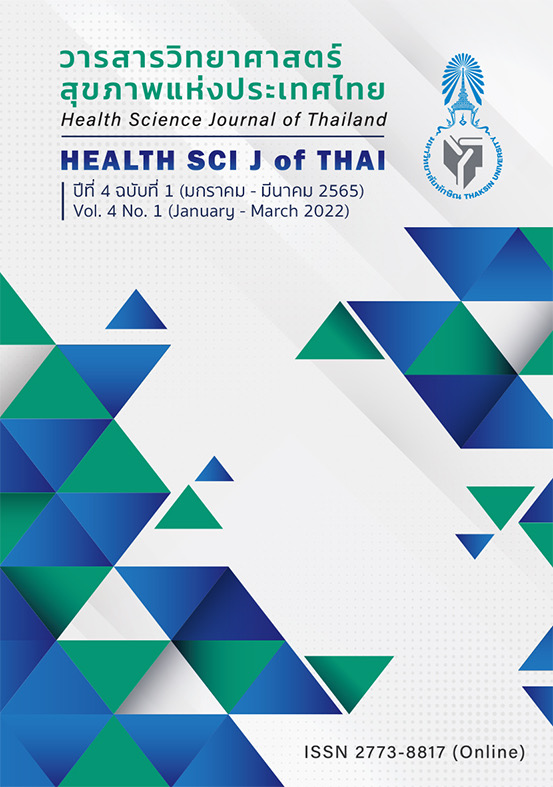ทักษะเพื่อการทำงานอย่างมีความสุขและประสบความสำเร็จในวิชาชีพการพยาบาล
Main Article Content
บทคัดย่อ
วิชาชีพการพยาบาล มีการทำงานเป็นทีมร่วมกับสหวิชาชีพ เพื่อตอบสนองความท้าทายของภาวะสุขภาพ ภายใต้ระบบงานที่ซับซ้อน การเปลี่ยนแปลงของสถานการณ์ตลอดเวลา ความก้าวหน้าของระบบบริการสุขภาพทั้งองค์ความรู้และเทคโนโลยี ความกดดันจากเวลาและสภาวะผู้ป่วย เกิดความเสี่ยงด้านสุขภาพจากการทำงานและปัจจัยอื่นในสภาพแวดล้อม จึงมีความเหนื่อยล้าและนำไปสู่ความเครียด เบื่อหน่ายและไม่มีความสุขในการทำงาน พยาบาลวิชาชีพจึงไม่เพียงแต่มีสมรรถนะเชิงวิชาชีพเท่านั้น แต่ต้องมีทักษะอื่นที่เป็นศาสตร์และศิลปะในการทำงาน ที่จะช่วยให้เกิดการเปลี่ยนแปลงในองค์กร สร้างคุณค่าต่อการทำงานและการดำเนินชีวิต ได้แก่ 1) มนุษยสัมพันธ์และการอยู่ร่วมกัน 2) ภาวะผู้นำ 3) ความฉลาดทางอารมณ์ 4) จินตนาการ 5) ความคิดสร้างสรรค์ 6) ทักษะชีวิต 7) การทำงานเป็นทีมและความร่วมมือ 8) การโต้แย้งอย่างมีเหตุผลและสร้างสรรค์ 9) การเรียนรู้ตลอดชีวิต และ 10) อารมณ์ขัน ทั้งนี้เพื่อให้พยาบาลสามารถปฏิบัติงานได้อย่างราบรื่นและเต็มศักยภาพ เยียวยาตนเองให้มีความสุขและถ่ายทอดความสุขสู่ผู้อื่น นำไปสู่ความสำเร็จที่เพิ่มขึ้น และเกิดแรงจูงใจอยู่ในวิชาชีพการพยาบาลอย่างยั่งยืน
Article Details

อนุญาตภายใต้เงื่อนไข Creative Commons Attribution-NonCommercial-NoDerivatives 4.0 International License.
เอกสารอ้างอิง
Jeawkok J, Dhammasaccakarn W, Keawpimon P. Retention and intention of resignation to the job of registered nurses in the university hospital, Songkhla province. NIDA Development Journal 2015; 55(3):109-144. (in Thai)
Tundee S, Vorahan V. Predictors of turnover intention of professional nurses in regional hospital, northeast region of Thailand. Journal of Nursing Science and Health 2017; 40(3): 116-125. (in Thai)
Yuanmae V. Factors affecting the outlook for the resignation of the main professional personnel in hospitals, Under the Nakhon Ratchasima provincial health office. Journal of Health Research and Development Nakhon Ratchasima Public Health Provincial Office 2020; 6(2): 92-111. (in Thai)
Seema K, Intaraprasong B, Pattara-achachai J. Registered nurse’s intention to leave the profession in Bangkok Metropolitan administration hospitals. Journal of Nursing Division 2015; 42(3): 142-158. (in Thai)
Chupan S, Khumyu A, Vatanasin S, Vatanasin D. Factors influencing intention to stay in career among professional nurses. The Journal of Faculty of Nursing Burapha University 2017; 25(4): 1-10. (in Thai)
Rungnoei N. Professional life planning: Successful strategy in Thailand 4.0 for nurses. Prachomklao College of Nursing, Phetchaburi Province, 2018; 1(1): 1-13. (in Thai)
Chuengsatiansup K. Inspire in working. In Supachutikul, A. (editor). HA update 2016. (first edition). Nonthaburi: D-ONE BOOKS;
(in Thai)
Kumkong M. Nursing students’ competencies and skills that promote safe in nursing practice. In Kumkong, M. (ed.) Nursing education with nursing practice for safety. Songkhla: Temp printing, 2020. (in Thai)
Taiyamart B. Human relationships. Journal of MCU Social Science Review 2017; 6(2): 353-368. (in Thai)
Chalongbun P. The happiness of personnel in the performance of government. Journal of MCU Peace Studies 2018; 6(Suppl): 591-599. (in Thai)
Chaleoykitti S, Thaiudom, A. Development plan for future nursing leadership. Journal of The Royal Thai Army Nurses 2014; 15(2): 148-154. (in Thai)
Limprasuti P, Tongvichean, S. Successful leadership. Thai Journal of Nursing 2015; 64(3): 1-5. (in Thai)
Watcharakate S. Ten principles of servant leadership for nurse leaders. Journal of The Royal Thai Army Nurses 2014; 15(3): 44-48. (in Thai)
Sripakho P. Professional nursing development: Developing nursing leadership. Journal of The Royal Thai Army Nurses 2014; 15(3): 1-8. (in Thai)
Mayer JD, Salovey P. What is emotional intelligence? In Salovey, P., Sluyter, DJ. (eds.) Emotional development and emotional intelligence: Educational implications. New York: NY: Basic Books; 1997.
Poomsanguan K, Paikoh K. Nurses and development of emotional quotient. Journal of The Royal Thai Army Nurses 2014; 15(3): 18-23. (in Thai)
Department of Mental Health. The manual of emotional quotient. [Internet]. n.d. [Cited in 15 June 2020] Available from: https://www.dmh.go.th/ (in Thai)
Supachutikul A. HA update 2015. Imagination for quality. Nonthaburi: D-ONE BOOKS, 2015. (in Thai)
Office of the Civil Service Commission. Creative thinking. [Internet]. 2016 [Cited in 15 June 2020] Available from: https://www.ocsc.go.th/ (in Thai)
Pipattanawong W. Life skill of Thai teen in 21st century. Payap University Journal 2014; 24(2): 39-63. (in Thai)
Srichaliaw T, Jomhongbhibhat B, Gumjudpai S. Life skills development for prathomsuksa 4-6 students using participatory action research. Journal of Graduate Studies Valaya Alongkron Rajabhat University 2017; 11(2): 61-74. (in Thai)
Office of the Civil Service Commission. Team building and team efficiency. [Internet]. 2016 [ Cited in 15 June 2020] Available from: https://www.ocsc.go.th/ (in Thai)
Ronsuek S, Pengsawat W, Chalakbang W, Jindasamutra P. The development of the effectiveness model on teamwork in schools under the office of the basic education commission in the northeast of Thailand. Journal of Education Khon Kaen University 2014; 37(1): 157-165. (in Thai)
Somcharoen N. Patient safety curriculum guide multi-professional (WHO): learning integration for the 21st century bachelor’s degree nursing curriculum. Journal of The Royal Thai Army Nurses 2015; 16(3): 1-7. (in Thai)
Pharanat W, Nuangchalerm P. Reasoned argumentation: a skill for surviving in the 21st century. Humanities and Social Science Mahasarakham University 2018; 37(2): 175-181. (in Thai)
Pongsathonviboon K. Lifelong Learning and Nursing Professional. Journal of The Royal Thai Army Nurses 2016; 17(3). 1-9. (in Thai)
Puangdee N, Wisesrith W. Experiences of head nurses in using humor for tension situation management in patient unit. Kuakarun Journal of Nursing 2017; 24(1): 55-69. (in Thai)


